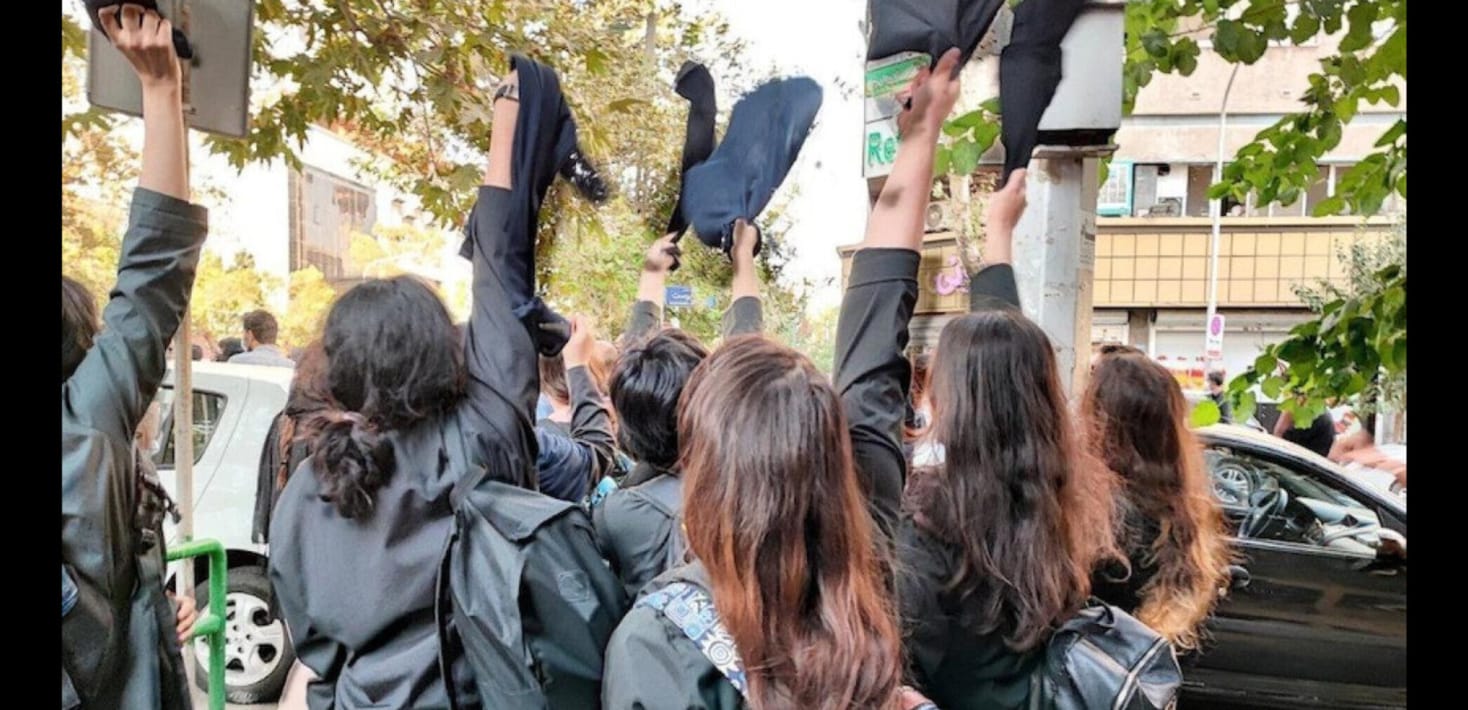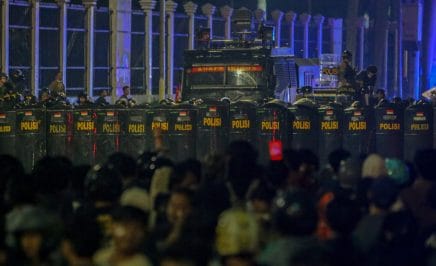Iranian authorities have adopted a new draconian law that further erases the human rights of women and girls, imposing the death penalty, flogging, prison terms and other severe penalties to crush ongoing resistance to compulsory veiling, Amnesty International said today.
The “Law on Protecting the Family through the Promotion of the Culture of Chastity and Hijab” will come into force on 13 December 2024, according to Iran’s Speaker of Parliament. In a dangerous escalation, the law permits the imposition of the death penalty for peaceful activism against Iran’s discriminatory compulsory veiling laws.
The law, containing 74 articles, also imposes flogging, exorbitant fines, harsh prison sentences, travel bans, and restrictions on education and employment for women and girls who defy compulsory veiling laws. It also penalizes private entities that fail to enforce compulsory veiling, while providing impunity to officials and vigilantes who violently attack women and girls for defying it.
“This shameful law intensifies the persecution of women and girls for daring to stand up for their rights following the ‘Woman Life Freedom’ uprising. The authorities are seeking to entrench the already suffocating system of repression against women and girls while making their daily lives even more intolerable,” said Diana Eltahawy, Amnesty International’s Deputy Regional Director for the Middle East and North Africa Regional Office.
“The authorities are seeking to entrench the already suffocating system of repression against women and girls while making their daily lives even more intolerable,”
Diana Eltahawy, Amnesty International’s Deputy Regional Director for the Middle East and North Africa Regional Office
“The international community must not stand idly by as Iranian authorities further codify repression and even resort to the death penalty to suppress dissent against compulsory veiling. They must use their leverage to press the Iranian authorities to withdraw this law and abolish compulsory veiling in law and practice. They must also pursue legal pathways to hold Iranian officials accountable for committing widespread and systematic human rights violations against women and girls through the implementation of compulsory veiling.”
The new law was drafted by the judiciary in May 2023 in response to widespread defiance of compulsory veiling by women and girls in protest at the death in custody of Jina Mahsa Amini, which sparked the “Woman Life Freedom” uprising in September 2022.
The Guardian Council approved the bill earlier this year. According to state media, while the president has yet to ratify the law, the Speaker of Parliament, Mohammad Ghalibaf, announced on 27 November 2024 that the law will take effect on 13 December 2024.
Death penalty, flogging, exorbitant fines and harsh prison terms
The law criminalizes and introduces severe penalties for “nudity, indecency, unveiling and bad dressing (bad poosheshi)”.
The law defines “unveiling” as the act of women and girls not covering their heads with a hijab, chador, or headscarf (Article 50).
“Bad dressing” for women and girls is defined as exposing any body parts below the neck, other than the hands and feet, or wearing clothing that “contributes to or incites the commission of sin by others” (Article 48).
“Nudity” and “indecency” are not defined.
Article 37 of the law provides that “promoting or propagating nudity, indecency, unveiling, or bad dressing” in collaboration with foreign entities, including media and civil society organizations, may be punished by up to 10 years’ imprisonment and a fine of up to US$12,000. This article states that if the conduct amounts to “corruption on earth”, it can be punishable by death under Article 286 of the Islamic Penal Code. This legal provision effectively means that women and girls sending videos of themselves unveiled to media outside Iran or otherwise engaging in peaceful activism may be sentenced to death.
Under Article 48, women and girls caught “bad dressing” face fines starting at around US$160 for the first infraction and escalating to US$4,000 for the fourth infraction. Women and girls engaging in subsequent “offences” risk a fine of around US$8,000, up to five years’ imprisonment, a two-year travel ban, and a two-year ban on using social media platforms (Articles 48 and 38).
Under Article 49, “nudity” by women and girls in public or online leads to immediate detention, prosecution, and up to 10 years in prison or a fine of up to US$12,000. Repeat “offenders” can be imprisoned for up to 15 years or fined around US$22,000.
Women and girls who are unable to pay fines will be barred from recovering their impounded vehicles, registering vehicles, acquiring or renewing driving licenses, renewing passports and leaving the country. They could also have their assets seized or face imprisonment (Article 56).
Article 67 specifies that the punishments outlined in Article 638 of the Islamic Penal Code, including flogging, continue to apply to anyone who “publicly engages in forbidden acts” and/or “offends public decency”, a provision which has been used to flog women defying compulsory veiling.
Under Article 38, “insulting or ridiculing the hijab” or “promoting nudity, indecency, unveiling and bad dressing” is punishable by a prison sentence of up to five years, travel ban and/or fine.
The law also prohibits the import and sale of clothes, statues, dolls, mannequins, paintings, books and magazines that “promote nudity, indecency, unveiling and bad dressing”.
“The complex web of fines, prison sentences and other severe punishments going as far as the death penalty demonstrates the state policy to control women and girls through fear and economic hardship. This law has particularly devastating consequences for the most economically disadvantaged in society,” said Diana Eltahawy, Amnesty International’s Deputy Regional Director for the Middle East and North Africa Regional Office.
Codifying impunity and encouraging violence against women
The law expands the powers of intelligence and security forces, including the police force, the Ministry of Intelligence, the Intelligence Organization of the Islamic Revolutionary Guard Corps (IRGC), and the Basiji agents of the IRGC, to enforce compulsory veiling.
It also provides blanket impunity for vigilantes carrying out their “religious obligation” to enforce compulsory veiling (Article 59). Anyone who tries to stop the arrest, harassment and violent attacks against women and girls defying compulsory veiling could themselves be imprisoned or fined (Article 60).
Business owners face fines, imprisonment, and advertising restrictions if they allow unveiled women and girls on their premises and/or are found “promoting” defiance of compulsory veiling (Article 40).
Background
Compulsory veiling laws violate a whole host of rights, including the rights to equality, freedom of expression, religion and belief, privacy, equality and non-discrimination, personal and bodily autonomy, and inflict severe pain and suffering amounting to torture or other ill-treatment.
In its March 2024 report, the UN Fact-Finding Mission on Iran (FFMI) concluded that the Iranian authorities committed the crime against humanity of persecution on the grounds of gender. The FFMI found that the authorities have “committed a series of extensive, sustained and continuing acts that individually constitute human rights violations, directed against women [and] girls…and, cumulatively, constitute what the mission assesses to be persecution.”









